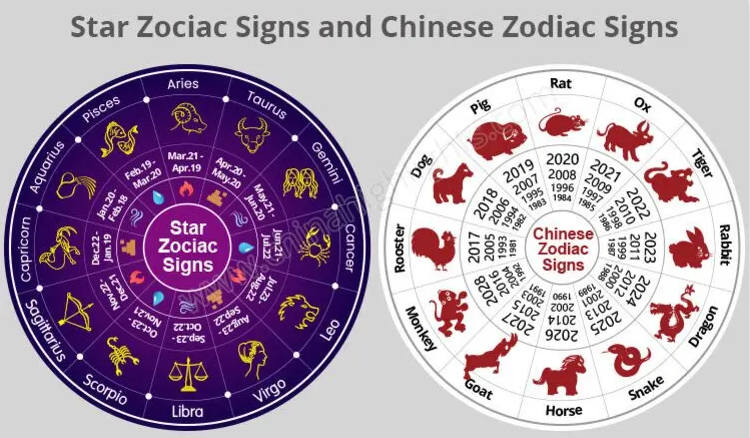Similarities:
- Time Periods of Birth: Both the Chinese zodiac and Western astrology base their signs on the time period in which a person is born.
- 12 Symbols/Signs: Each system consists of 12 distinct signs, each associated with specific personality traits and fortunes.
Differences:
- Origins:
- Chinese Zodiac: Originates from ancient musings on archetypal animals, their personalities, fortunes, and relationships with one another and birth years. The sequence of the 12 signs is explained by the myth of a celestial race.
- Western Astrology: Based on the positions of constellations relative to the Earth, named according to Greek mythology. Astrological theory is developed based on the supposed influence of the stars on human personalities and lives.
- Calculation Basis:
- Chinese Zodiac: Calculated on a year-by-year basis.
- Western Zodiac: Corresponds with months.
Chinese Zodiac in Other Asian Countries
The Chinese zodiac has significantly influenced several other Asian countries. While some countries use the exact same zodiac animals, others have slight variations.
Countries Using the Same 12 Animals as China:
- South Korea
- North Korea
- Singapore
- Cambodia
Countries with Different Animals:
- Japan:
- Animals: Rat, Ox, Tiger, Rabbit, Dragon, Snake, Horse, Goat, Monkey, Rooster, Dog, Boar.
- Vietnam:
- Animals: Rat, Buffalo, Tiger, Cat, Dragon, Snake, Horse, Goat, Monkey, Rooster, Dog, Pig.
- Thailand:
- Animals: Rat, Ox, Tiger, Rabbit, Naga (mythical half-human-half-snake spirit), Snake, Horse, Goat, Monkey, Rooster, Dog, Pig.
- Myanmar (Burmese Zodiac):
- Animals: Garuda (mythical bird), Tiger, Lion, Elephant (with tusks), Rat, Guinea Pig, Dragon.
Further Reading
For more detailed insights and comparisons, you can explore the following resources:
- Differences between the Chinese Zodiac and Western Astrology
- China Highlights – Chinese Zodiac
- Chinese New Year – Zodiac
- Travel China Guide – Chinese Zodiac
These sources will provide comprehensive information about the attributes of each zodiac sign, cultural influences, and historical context.
